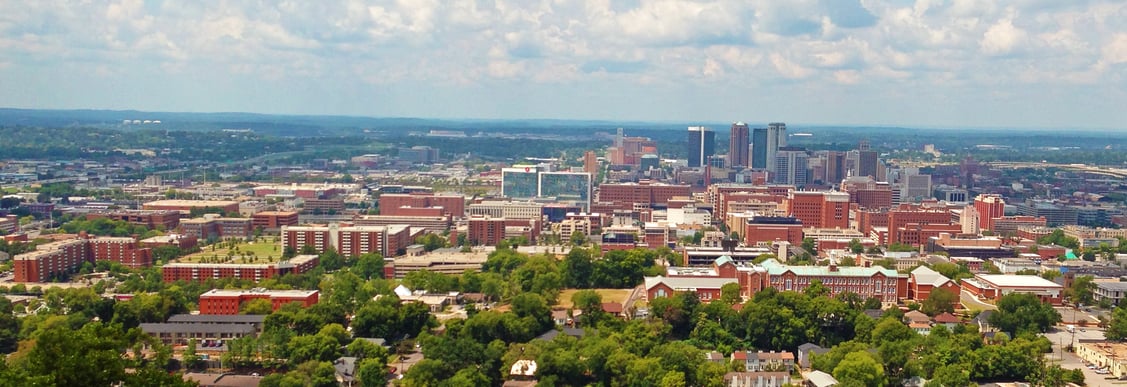Researchers and clinicians at the newly renamed University of Southern California's Epstein Family Center for Sports Medicine will collaborate with the university’s Athletics Department and the Keck School of Medicine to develop innovative injury prevention strategies to not only keep Trojan student-athletes healthy, but also help predict the risk of injury and reinjury. $10,000,000 recently donated by the Epstein Family Foundation will help USC staff achieve this.
Read More
Tags:
CA,
University of Southern California,
New research facilities,
California,
USC,
Southwest Region,
New research center,
biomedical researh,
Biotechnology trade show,
Sports Medicine
Celebrations were held in September for two new facilities on the St. Petersburg campus of the University of South Florida. Grand opening festivities were held for a new seven-story, 225,000-square-foot Research and Education Building. In the same month, groundbreaking ceremonies marked construction of the K9 Tactical Center/Florida’s Forensic Institute for Research, Security and Tactics (F.I.R.S.T.).
Read More
Tags:
Biotech Event,
Biomedical Engineering,
Biotechnology Vendor Fair,
University of South Florida,
USF,
bioengineering,
biomedical researh,
Biotechnology trade show,
medical research building,
Health,
Research And Education,
new building construction,
April 2019
Five University of South Florida (USF) Professors received 2018 Excellence in Innovation Awards from the university’s chapter of the National Academy of Inventors in September. USF Research News states that the faculty were recognized for inventing and patenting new technology, creating startup companies and securing research grants and outside investment funding as well as supporting student innovators in research projects.
Read More
Tags:
breast cancer research,
Biotech Event,
cancer research,
Cancer Treatment,
Biomedical Engineering,
Biotechnology Vendor Fair,
breast cancer funding,
University of South Florida,
USF,
bioengineering,
biomedical researh,
Biotechnology trade show,
USF Health Morsani College of Medicine,
biofuel research,
April 2019,
virus research,
colon cancer
Currently, doctors have two options when a patient needs a facial bone replaced due to injury or illness, such as cancer. They can take a bone from another part of the body and graft it into place. However, implant morbidity and complications caused by the trauma of multiple surgeries make this option less than ideal. The second option is to graft synthetic materials to the site. However, from time of injury to delivery of the custom implant takes about three to four weeks, which reduces the chances of the patient healing properly. But now a new technology being developed by researchers at Texas A&M’s College of Dentistry may revolutionize the treatment process.
Read More
Tags:
Biomedical Equipment,
Texas A&M University,
Biotechnology Vendor Fair,
Texas A&M Research,
Texas A&M Life Science Funding,
Texas A&M,
biomedical researh,
3D printing,
Biotechnology trade show
The University of South Florida announced the creation of a Department of Medical Engineering. This trans-disciplinary department consists of physicians and engineers specializing in chemical and mechanical engineering, biomedicine and nanotechnology. It was established through the collaborative efforts of USF’s College of Engineering and USF’s Health Morsani College of Medicine. The goal is to combine related aspects of engineering and medicine while providing access to real-world health care environments for education and research.
Read More
Tags:
Biotech Event,
Biomedical Engineering,
Biotechnology Vendor Fair,
University of South Florida,
USF,
bioengineering,
biomedical researh,
Biotechnology trade show,
USF Health Morsani College of Medicine
Over the last 40 years incidence of Autism Spectrum Disorder (ASD) have increased tenfold. Until recently, the cause of autism was a complete mystery. Now a major discovery at UCLA has just brought researchers one step closer to unlocking the mystery of ASD.
The UCLA study found distinctive changes in the levels of tiny regulator molecules known as microRNAs in the brains of people with ASD. These microRNAs control the activities of large gene networks. This finding helps explain why so many genes are abnormal in autism disorders. It could also lead to targeted treatments or preventative measures someday.
Read More
Tags:
University of California Los Angeles,
Biotech Event,
UCLA,
biomedical researh,
autism research,
mircoRNA,
Dr. Daniel Geschwind
Researchers at the Columbia University Medical Center (CUMC) may have found a way to reduce brain damage caused by a stroke or stroke-like event. In a study funded by the National Heart, Lung, and Blood Institute and the National Institute of Neurological Disorders and Stroke, 10-day-old mice that had an hypoxic (lack of oxygen) or ischemic (lack of blood) brain injury were treated with a fat emulsion containing either DHA or EPA—omega-3 fatty acids. The researchers evaluated the mice’s neurological function 24 hours and 8 to 9 weeks after the brain injury. They discovered that the mice treated with the DHA omega-3 fatty acids had a significant reduction in brain injury. This did not hold true for those treated with EPA-omega 3. The DHA group also had significantly better results in multiple brain functions during the 8 and 9 weeks evaluation compared to the EPA-treated mice and the control group which went untreated.
Read More
Tags:
BioResearch Trade Show,
New York,
Columbia University,
Columbia,
NY,
New York City,
Columbia University Medical Center,
biomedical researh,
stroke,
stroke research,
DHA omega-3 fatty acids
Parkinson’s is a degenerative condition that affects over one million Americans - even greater than the number of those suffering from multiple sclerosis, muscular dystrophy and Lou Gehrig's disease combined. There is no cure, but this month researchers at the University of Alabama at Birmingham made two important breakthroughs for treating the disease. One group of researchers has discovered the cause of the negative side-effects of L-DOPA and a potential way to counter-act it. Another group of researchers have “discovered an interaction in neurons that contributes to Parkinson’s Disease and they have shown that drugs now under development may block the process.”

(Image of the University of Alabama, Birmingham courtesy of Jaymay via Wikimedia Commons)
Read More
Tags:
Parkinson's Disease Research,
University of Alabama Birmingham,
University of Alabama at Birmingham,
Parkinson's Disease,
biomedical researh,
Dr. Volpicelli-Daley,
Dr. Standaert


